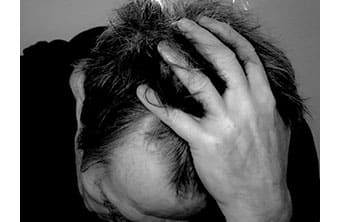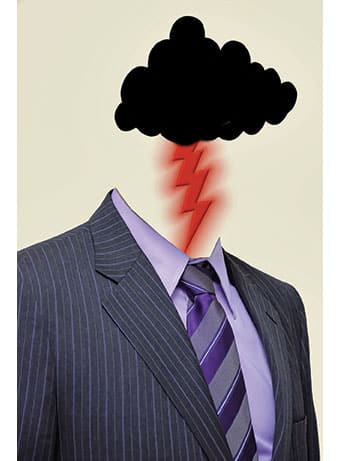
Changing the Narrative Around Men’s Self-Care
Last summer and fall, I was a mess. I was impatient and short with my family at times. I felt unfulfilled at my job. I hadn’t been exercising much. My grandmother passed away. I wasn’t writing regularly. I felt overwhelmed, as if this world was a nauseating, spinning fair ride that I couldn’t step off of. I knew I needed to take myself back, but how? Unlike previous funks I had been in, I didn’t feel like I could do it alone. So, I decided to contact a therapist, something I had never really considered before. Ultimately, her schedule didn’t align with mine; however, the act of reaching out was quite liberating. The confidentiality and neutrality factors influenced me to “be okay” with it because I couldn’t open up fully to those who knew me.

Photo courtesy Gerd Altmann via Pixabay.
Amy Goode, a licensed therapist and social worker based out of Bangor, said, “Men can be incredibly self-reflective, but they do not always feel comfortable enough to show vulnerability with partners, friends, or family members.”
Guys – we live in a world that we can’t shut off as it bombards us with ads, videos, social media reels, and endless notifications when finally, we have a second. We all need to work, sometimes outside (or in addition to) traditional office hours. Costs are high. We got to keep on truckin’ for the family or the job or literally anything but ourselves because who has time for that crap, right? It’s easier just to bear the burden sometimes and shut ourselves out.
As Goode said, “Emotional suppression is a common response, but it never works in the long term. It always comes out in some manner, eventually.”
Being aware leads to self-care—but is not easy. However, the clues are right in front of us. We experience physical reactions to stress and anxiety, which can include heavy breathing, racing thoughts, short tempers, tightness in our chests, knots in our stomachs, or the sweats. Or, we can undergo a numbness or an emotional apathy as a response. We should recognize these telling responses, not normalize them.
Our bodies are trying to tell us something through these sensations, just like our belly beckons for another bratwurst, just less obvious. We need to figure out what vexes us and what’s void in our lives. What are we doing and what we are we not doing that’s causing stress? Ask yourself: What’s draining my cup? What can fill my cup? Then, take some action, even if it means small steps. I joined a more convenient gym with a pool and scheduled a weekly writing block. I’ve been swimming and writing more. I’m better, not fixed, but better. “Fixing” implies that something is broken. Feeling more like yourself is the goal, and taking proactive steps either via self-care or seeking professional help can make that happen.
I admit that even mild exercise and strengthening can have a significant impact. Men tend to only apply extremes to scenarios, like running marathons or maxing out on the bench press. Anything less doesn’t count, right? Wrong. Simply walking during a lunch break can help recalibrate your mental mindset. You don’t need to sign up for the next triathlon. It’s okay to start small. Each morning, I spend 10 minutes stretching my back and legs along with pushups, and I feel much better physically and mentally. But try to do something you like doing, not something you think you should do. I need to clarify that exercising may not help or cure chronic depression or mental health disorders,for some people, so seeking professional help from a doctor may the best course of action.

Photo courtesy kalhh via Pixabay
Self-care doesn’t mean being selfish, though it’s easy to feel that way. We can’t take care of others without taking care of ourselves first. Despite the odds, we can take control even if complete control is impossible. We can listen to ourselves and let others guide us if we need it. Even the best ship captains need riverboat pilots to help them through the Mississippi River’s most turbulent currents.
“For those men who do seek professional help, it can be life-changing,” said Goode. Therapy can give them a nonjudgmental space and neutral party to work through their stuff. Just as a man might seek a doctor for a stomach problem, mental health professionals are trained to identify, diagnose, and help others get them through whatever challenges they are facing.”
And that’s where we’re at, fellas. It’s not the world our fathers and grandfathers left behind. We’re all the better for it, though. The world still needs us. Our spouses need us. Our children need us. Our coworkers need us. We live in a brave new world that demands a different kind of courage from us. We have this fear ingrained in us that others will think less of us or ridicule us, but the opposite is true. Our circle of family, friends, colleagues, and community members are ready to help us weather the storms. I’m not a mental health counselor, but if you don’t think your friends are up for that challenge—you’ve just found your first step in the process. Surround yourself with teammates, not spectators, and definitely not hecklers.
So, if you feel like you need to reach out to a mental health professional to help get your mind right again, you just have to “man up” and do it.
J.G. Breerwood is an English teacher and a writing advisor at Lewiston High School. His first novel, Sinking Dixie, is about a dystopian New Orleans future. He lives in Topsham with his wife and two children.




